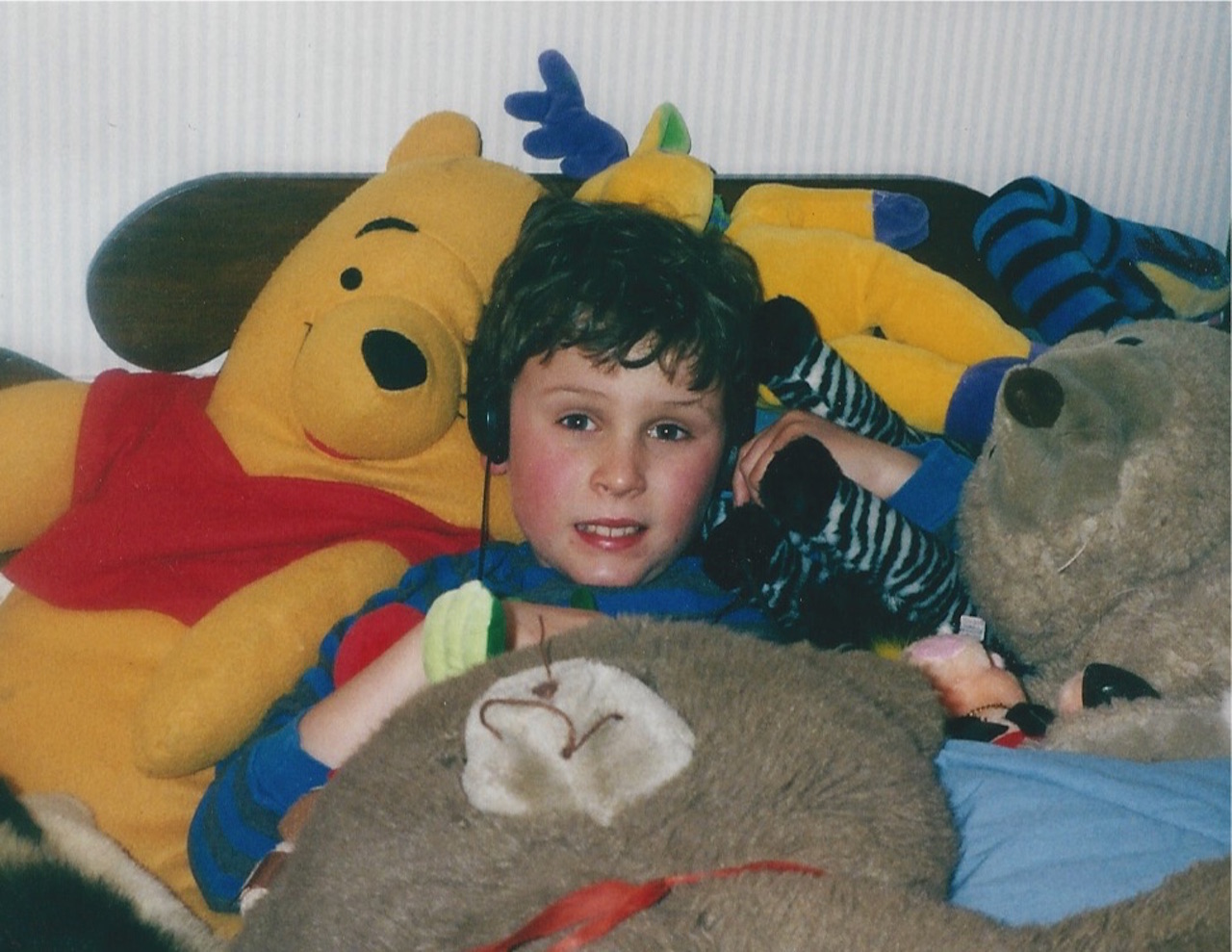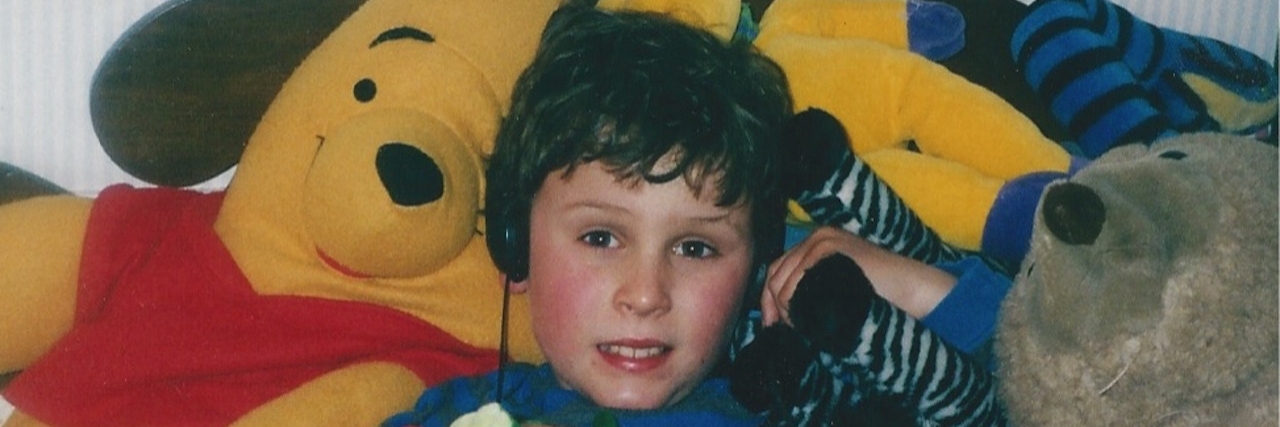Every few months for the past 10 years, Evie from AMVETS calls to ask for a donation. She is 97 years old and has been soliciting for the veterans for over 30 years. I never turn her down, even if I have to raid my husband’s closet to fill a bag.
Our interactions have grown through the years from confirmation of address and pickup time to lingering, affectionate chats. I’ve learned, for instance, she has five children and 12 grandchildren, one of whom graduated from University of Chicago last spring. I don’t rush off the phone when Evie calls, no matter what I’m doing, mindful that each comforting connection may be our last.
Her call last Thursday was a welcome reprieve from the fruitless knot of writing I’ve been tangled in for weeks, work on an piece that has failed to come together despite dogged attempts to force its cohesion. Although my donation bin out in the garage was empty, I told her I’d come up with something.
“Anything is welcome,” she affirmed, as she always does. “Clothing, books. Old toys — we can use anything.”
“Well, my children are 26 and 24,” I replied with a chuckle. “So I don’t have too many toys around the house anymore.”
She continued her gentle coaxing, even though I’d already agreed to a donation. “Children’s books are good. And stuffed animals are always appreciated.”
I thought of my son’s bedroom upstairs, the built-in shelves lining one wall still filled with plush animals of various species. A lifelike lion sprawls regally across the twin bed; a 5-foot-tall giraffe gazes out the front window, a gift from my mother-in-law the last Christmas before Daniel left home.
Suddenly I was confiding in a woman I’ve never met, but who’s been a fixture in my life for a decade.
“You know, Evie, my son has autism and hasn’t lived with me for over eight years. But his room is the same as it used to be. It’s filled with stuffed animals I can’t bring myself to give away.”
In a rush, I continued, explaining I’m a blogger and had been trying when she called to write about pain I can’t relinquish, nor find words adequate to explain.
“I don’t know what’s the matter with me, Evie,” I went on tearfully. “I know he’s not coming home. He’s never coming home, but I’m still waiting. I’m still waiting for it to be different.” My voice broke. “I can’t let go of him.”
Evie replied without hesitation. “Of course you can’t,” she declared. “You carried him. He’s a part of you. He’ll always be a part of you.”
We talked for some time, about loss, what it takes and what it leaves behind. “You are stronger for what you’ve gone through,” she observed, the experience of nearly a century lending new credence to the words. “But you don’t ever let go of what you feel for your child. He is always a part of you.”
In the weeks following Daniel’s move to a therapeutic residential school, I spent many nights curled in his bed, lost to grief, laden with treacherous, guilty relief that I could now relinquish the rigors of his care. I knew I’d needed help. That didn’t ease the burden of failure, though — the awful acknowledgement my best efforts weren’t enough.
Surrounded by the mementos of his life with me, I let the sorrow flow. My eyes fell on photos of his special ed peers, his middle school diploma, a worn communication notebook from the fourth grade. I held the photo of a dolphin leaping from the water at the Shedd Aquarium, a clipping from the Chicago Tribune he’d often pull from his nightstand and ask, hopefully, “Fish?”
His animal collection, amassed over 15 years, peered down at me. The swivel-headed owl; the wolf, its head thrown back in a howl Daniel had learned to imitate; the spotted pony, a token of our joy at his first coherent word as a toddler, “Horse!”
How can I let go of these companions, tossed countless nights across his bed, before we turned off the light for sleep, Daniel calling each one by name? “Bear!” “Sheep!” “Frog!” Again and again I’d lob the soft toys until he was surrounded, giggling and gleeful and snug in their comfort — a treasured ritual of our uncommon life, a period of laughter and happiness, soothing whatever trials the day, now gone, had rendered.

It’s long been my plan to refit Daniel’s bedroom into an office, keeping his bed in place, while filling the shelves now housing his animals with the dozens of books stacked in piles on my own bedroom floor. It would be a fitting space for me to write, to wrestle the ongoing themes that have shaped my life, to draw meaning from circumstances I still struggle to understand.
I can’t bring myself to do it, though, to symbolically sever a tie that has been loosening on its own, bit by bit, for years, to grant permanence to a truth I’ve tried to deny for half my lifetime.
If I’m honest, Daniel himself probably wouldn’t object to the change to his old bedroom. He once raced through the house on his visits home, darting into each room as though confirming the accuracy of his memories. On his last visit, though, I had to coax him upstairs, where he studied the souvenirs of his childhood with mild interest, humoring me, it appeared, more than savoring a time now past. He seems to recognize this as home but a home he doesn’t live in any more. And that’s OK with him. He’s moving on, just as he should, as he must.
I told Evie I’d try to choose an animal or two to donate this time, and she told me not to worry; I would do it when I was ready, if I am ever ready at all.
I don’t know when this will be. Part of me still clutches the slender reed of hope that he’ll return home. I’m still waiting for another chance. I still want him back with me again.
This is unlikely, irrational. Futile, even. I know this; I do.
Yet hope is relentless. Perhaps that’s how it must be, too.

